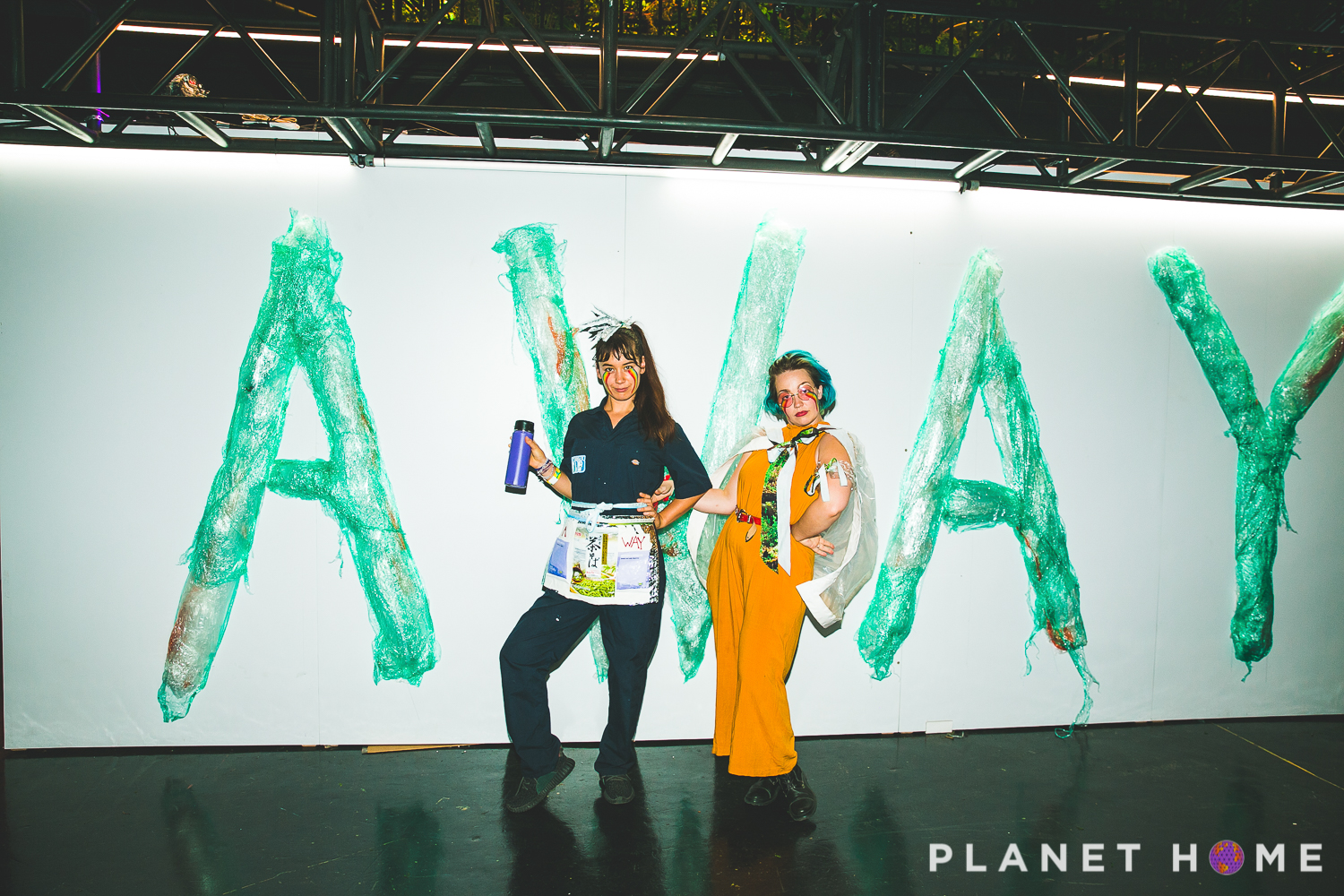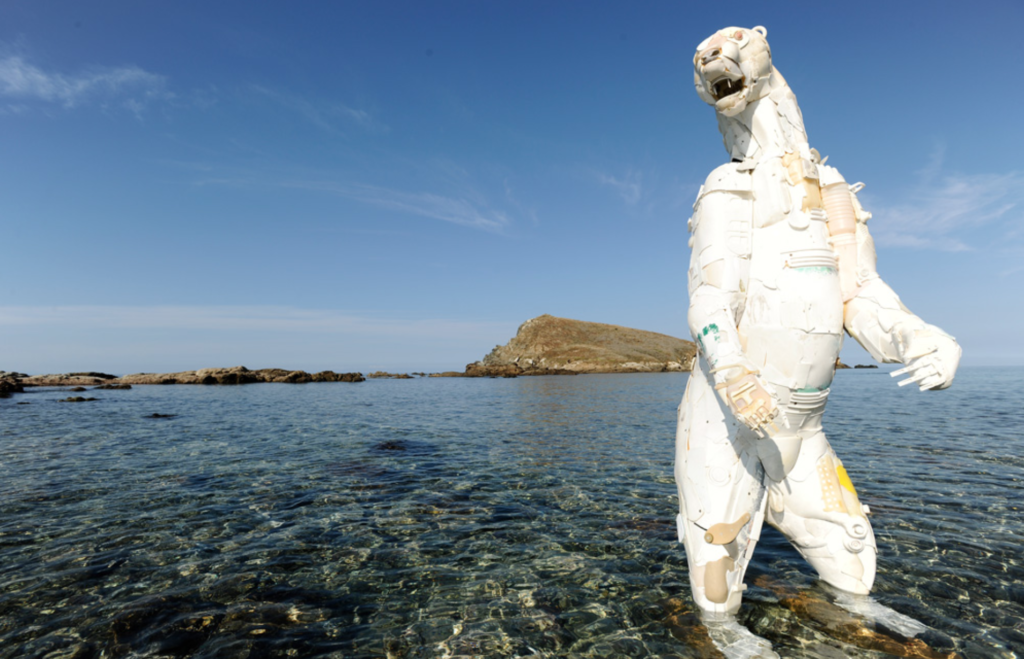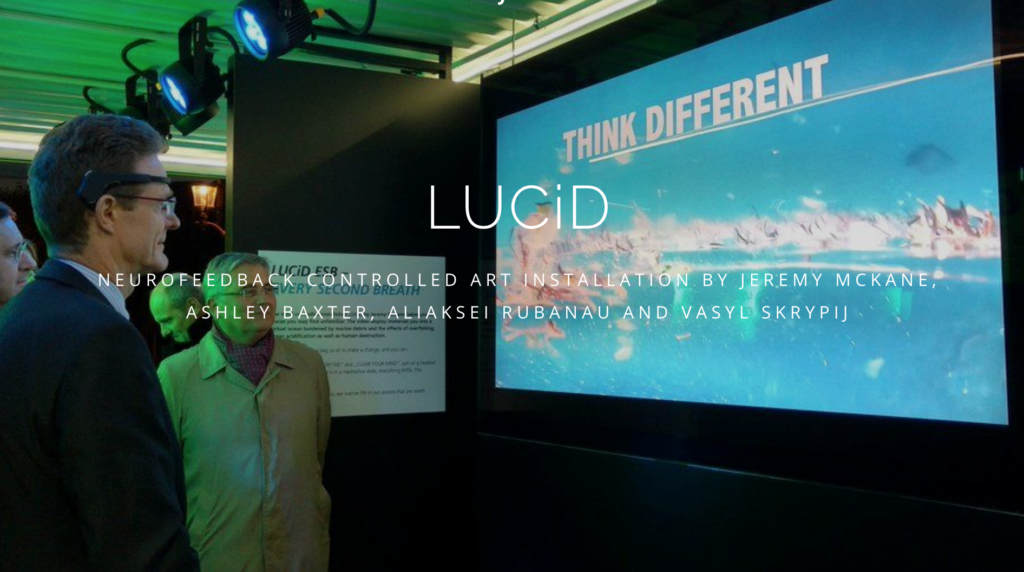How Artists Make Plastic Pollution Personal

We know pollution — especially plastic — is a world-wide problem. We generally all know how to avoid contributing to it: We know not to litter, and to recycle whenever we can. But are we thinking about pollution as a personal problem? For most, the answer is no. Most people don’t lose sleep over how much plastic they use, or obsess over where their discarded plastics end up… Like many issues, pollution is a problem that is often out of sight, out of mind.
The solution? We need to make pollution a personal problem.
Basic psychology supports that when an issue affects you personally, you’re much more motivated to find a solution. That’s the catch with plastic pollution: The majority of its disastrous effects are exhibited out in our oceans, physically separated from us. To mend this disconnect, creative solutionists are harnessing the power of art to make plastic pollution personal.
Artists Exploring Plastic Problems & Solutions
Gilles Cenazondotti

One such artist is Gilles Cenazandotti, who puts the pollution itself on display by creating installations from discarded plastic — like his sculptures of endangered animals, constructed from litter found on Mediterranean beaches. Some of Cenazandotti’s sculptures were featured at Planet Home’s 2017 event, where they served as a reminder that our discarded plastics are directly affecting many species of animals and their habitats around the world. The fact that Cenazandotti produces such beautiful art by repurposing the products of such an ugly issue like pollution is a perfect paradox; and this stark contrast between the beauty of art & nature and the unsightly damage caused by pollution is exactly how his (and other artists’) pieces force viewers to re-evaluate their relationship with plastic & the ocean.
Joel Dean Stockhill & Yustina Salnikova
This theme of re-evaluating our relationships with plastic is also at the core of artwork by producer and art director Joel Dean Stockhill and Yustina Salnikova. This duo teamed up to create “A-WAY”, an installation that featured a maze of towering walls constructed from hundreds of pounds of litter. A-WAY was on display at Planet Home’s 2019 event, and it forced attendees to confront their use of plastics by putting the effects of pollution right there in front of them.
The installation was created to emphasize the fact that there’s no true “away” when it comes to plastic: Since plastic doesn’t decompose, it remains on the planet forever. Even though every plastic fork, coffee cup, and snack wrapper leaves your sight once you recycle it, those seemingly insignificant objects all pile up, sitting in landfills for the rest of your lifetime (and beyond). To reinforce this point, viewers of the A-Way installation were also encouraged to sign a pledge promising to avoid single-use plastics, and instead find reusable alternatives — making them truly reconsider how they use and discard of plastic.
Tiare Ribeaux
One reusable alternative to single-use plastics is bioplastics, which were also featured in an exhibit at Planet Home’s 2019 event. Producer and art director Tiare Ribeaux educated attendees on the benefits of biodegradable plastic alternatives, while giving them a live demonstration on how to make their own bioplastics at home (yes, it’s that easy!). Ribeaux’s work shows people that finding more sustainable solutions often isn’t as difficult as we may think; and many times making the shift towards sustainability is mainly about your mindset.
Jeremy McKane

Artist & photographer Jeremy McKane heavily involves the viewer’s mindset in his work, by incorporating psychology. His innovative installation “LUCiD” investigates and deepens people’s relationships with plastic & the ocean, by confronting them with photographs of ocean pollution around the world. He then uses electroencephalography (EEG) headsets to track viewers’ brain activity while they process these powerful images.
The experience starts with pictures of polluted ocean waters; then, when the headset senses the viewer reaching a meditative state in contemplating these images, the screen starts showing pictures of clean ocean water — a glimpse of the potential beauty that we could expose by diminishing plastic pollution. “LUCiD” has traveled to several countries, connecting people across oceans, through art. Click here to view a VR tour of LUCiD during its 3-year international tour with the Ocean Plastics Lab.
For McKane, art is about telling a story. In an interview with Planet Home editor Rayanne Piaña, he said: “Each of us plays a role, and our actions are directly tied to the way we think and feel first”. Such is the purpose of “LUCiD”, and all of the works mentioned above: To make individuals realize their role in plastic pollution, by affecting their thoughts and emotions.
Pollution as a Personal Issue
Although global plastic production has quadrupled in the past forty years, still only 9 percent of all plastic waste is recycled. The rest ends up everywhere we look — and everywhere we don’t, like on the Great Pacific Garbage Patch in the middle of the ocean. Along with minimizing plastic use in your daily life, here are some organizations you can support to help clean up our oceans:
- 4Ocean – Business selling products made from discarded plastic, profits go towards cleaning up our beaches & oceans
- Plastic Oceans – A nonprofit raising awareness about oceanic plastic, creators of the award-winning film “A Plastic Ocean”
- Ocean Conservancy – Creating “science-based solutions” to protect our oceans
- Oceana – The “largest international advocacy organization focused solely on ocean conservation”
Like Jeremy the artists mentioned (and many more) are conveying through their creative efforts, we all play a role in plastic pollution; and we should all consider it a personal issue in order to enact widespread change. Living in an individualistic society, it’s easy to slip into the mindset that if a particular issue does not affect us directly, then it’s “not our problem”… But issues like plastic pollution — even when the impact is largely unseen — affect each and every one of us in the end.


Leave a Reply